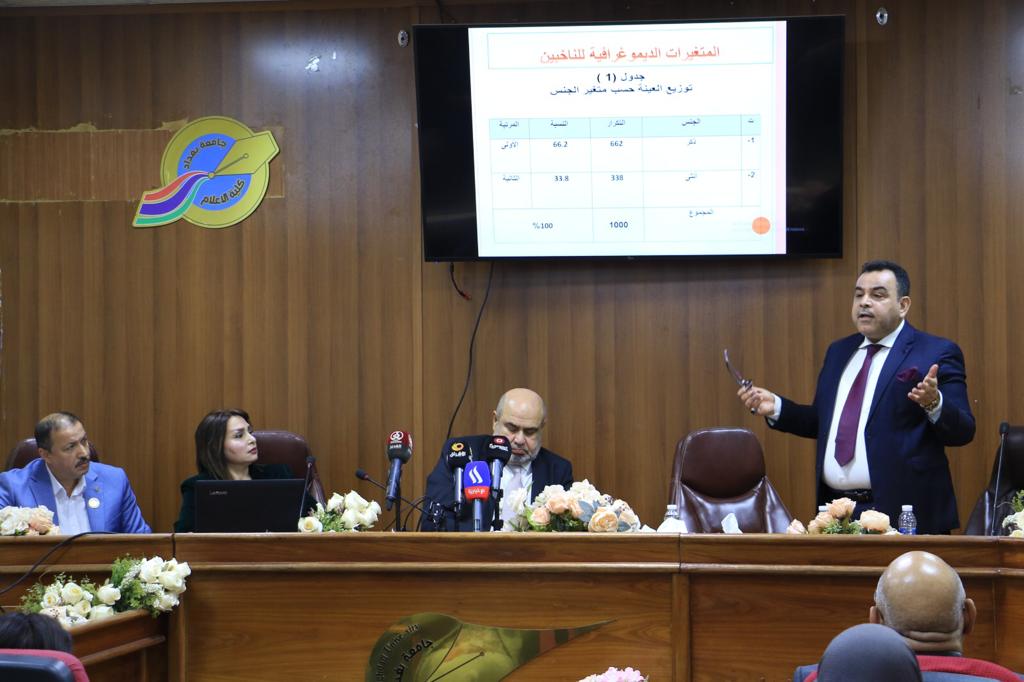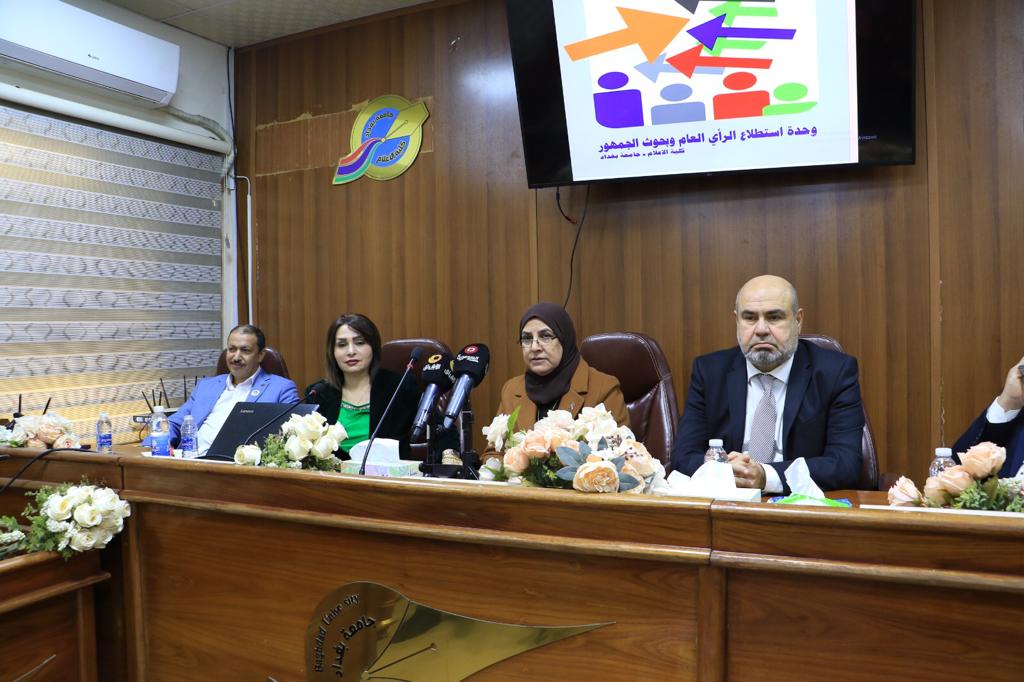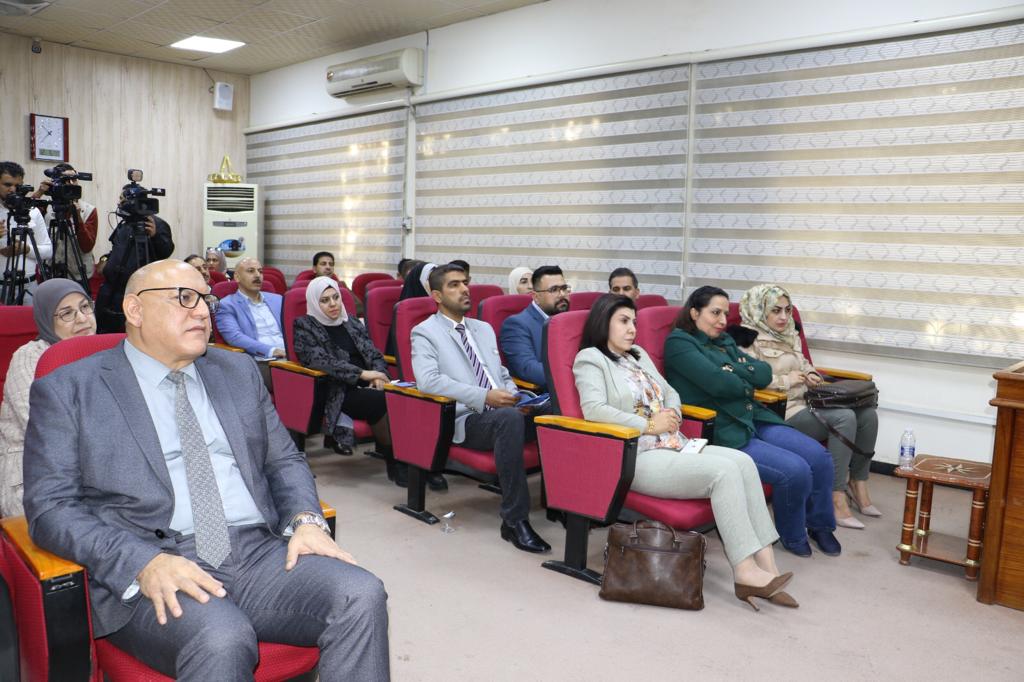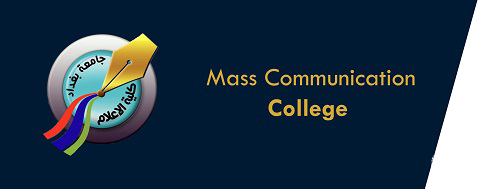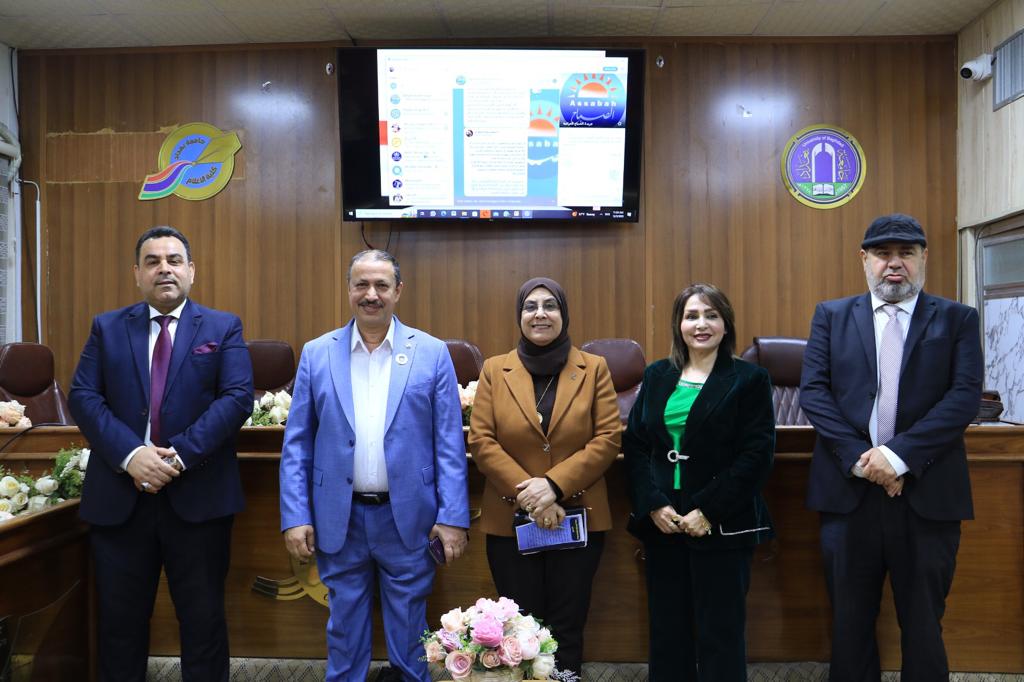Today, Tuesday, the Opinion Polls Unit at the College of Information at the University of Baghdad presented the results of a survey on the Iraqi public’s opinions regarding the 2023 provincial council elections. The results revealed important aspects related to the extent of expected participation and the reasons for interest or concern about the electoral process.
The results showed that “43% of the survey participants have not yet decided whether they will participate in the upcoming elections, while 35.9% of the participants declared no intention to participate at all, while 21.1% expressed their intention to participate in the upcoming elections.”
The reasons for non-participation are an important focus in these results, as they showed that “67.9% believe that manipulation and fraud will occur in the upcoming elections, with the presence of external parties considered as the main reason for their interference.” As for the reasons for participating, the most prominent of them is the desire to change the corrupt, at a rate of 31.25%, and a desire to choose people with experience and competence, at a rate of 21.20%.
Growing doubts about the electoral process have raised questions about confidence in the Election Commission, as results showed that “71.5% of participants show only moderate confidence in the Commission’s performance in managing the electoral process.”
Moreover, the importance of competence and specialization is highlighted as a main criterion for selection, as “76.1% of participants indicated this characteristic as one of the main factors for selecting candidates.”
It was found that “among the most important reasons cited by participants who have not yet decided whether or not to participate is the inability to identify suitable candidates at a rate of 37.50%, the discrimination of major forces in the electoral law at a rate of 32.33%, and weak opportunities for candidates at a rate of 12.17%.”
As for the mechanisms proposed by the participants to reduce manipulation and fraud in the elections, the first was the adoption of electronic and paper voting, counting and sorting mechanisms by 70.6%, while 26.4% suggested adopting an electronic mechanism only.
Regarding the personalities nominated for the elections, the results showed a preference for professional figures at a rate of 93.3%, followed by academic figures at a rate of 87.9%, and with a large difference came religious figures at a rate of 28.6%. In addition, the results show that the factors preferred by participants in choosing candidates include the electoral and service program at a rate of 41.84%, and menu selection by 32.65%.
These results demonstrate the diversity of opinions, concerns, and challenges facing the Iraqi public in the upcoming electoral process, highlighting the importance of taking these factors and challenges into account in the context of public dialogue and developing the election process to achieve broader participation and integrity in the democratic process.
